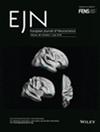Early Pro- and Anti-Inflammatory Immune Response Induced by Probiotic Treatment After Th9 Compression: The Interplay Between Spinal Cord and Jejunum
Abstract
The aim of our study was to limit the inflammatory response after spinal cord injury (SCI) using the probiotic strain Lacticaseibacillus paracasei Ž2 (5 × 109, CFU/mL). The relationship between pro- and anti-inflammatory markers was studied in a rat model after Th9 compression (40 g/15 min) and daily application (7 or 14 days) of probiotics. The probiotic treatment strongly reduced pro-inflammatory markers specific for microglia/macrophages (CD11b), microglia (CD68, IL-6, and iNOS), astrocytes (C1q), and TLR/NF-κB signaling pathway at lesion site and to a lesser extent cranially and caudally (0.3 cm) 7 days postinjury. In the spinal cord segments, 2-week probiotic therapy affected the expression of these targets depending on the intensity of their damage (cranially > caudally > lesion site). It was also noted that the impact of 14-day probiotic therapy in the jejunum was more pronounced than after a shorter treatment. Additionally, probiotic therapy significantly boosted the neuroprotective and anti-inflammatory milieu in the spinal cord tissues. Seven days post-SCI probiotic therapy had the potential to modulate the unfavorable environment around the injury site by increasing the anti-inflammatory microglial (IL-4Rα, TGF-β, and SOCS3) and astroglial (Ptx3) transcripts and by overexpression of immunoregulatory (TLR9 and IFN-γ) markers leading to functional remodeling and mitigation of hematuria. Longer post-SCI probiotic treatment upregulates the neuroprotective molecules at the injury site and simultaneously regulates the anti-inflammatory response in the jejunum. Herein we show that probiotic strain L. paracasei Ž2 has the potential to manage inflammation induced by SCI in both the gut and affected spinal cord within both subacute phases.

 求助内容:
求助内容: 应助结果提醒方式:
应助结果提醒方式:


